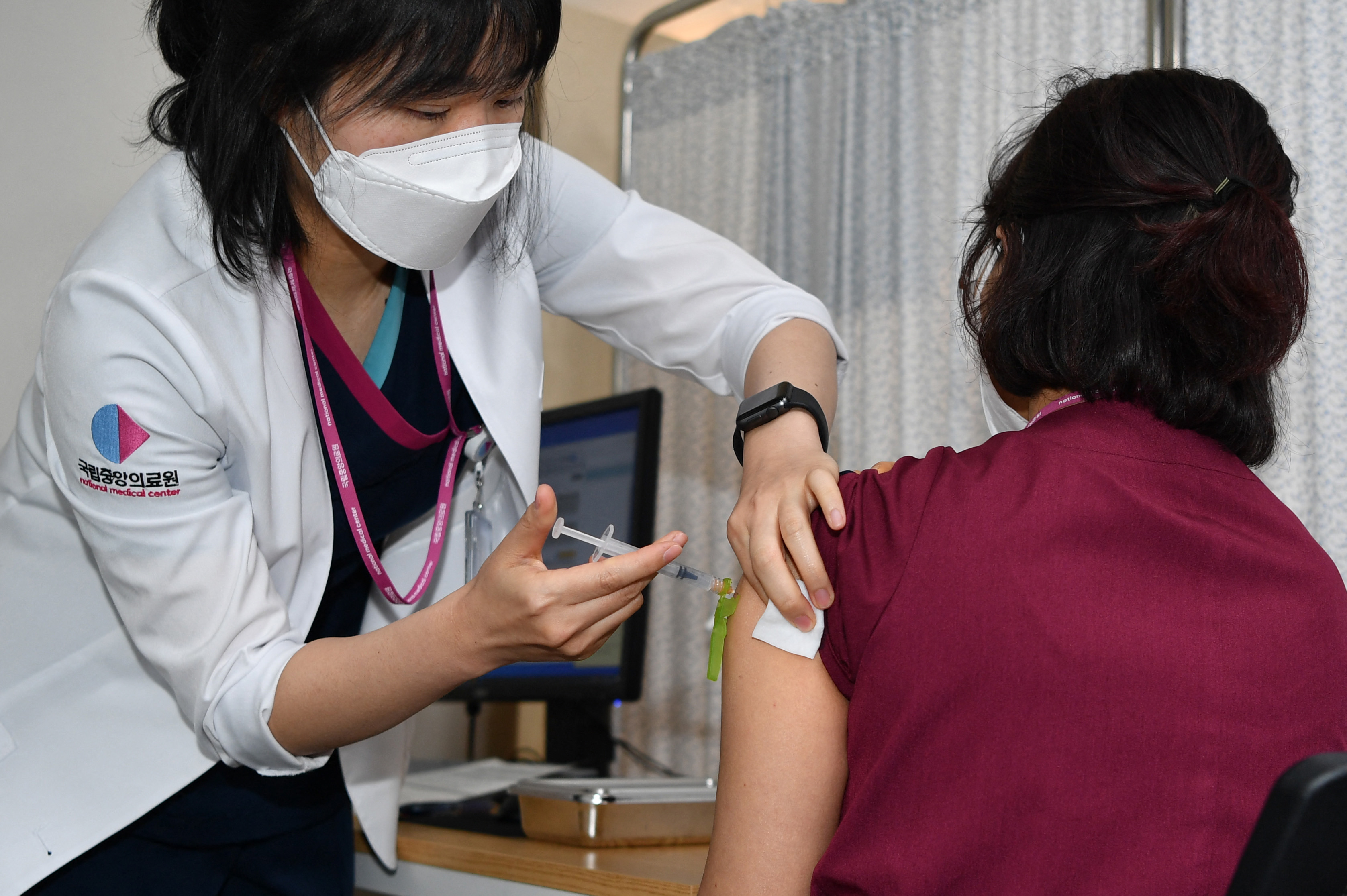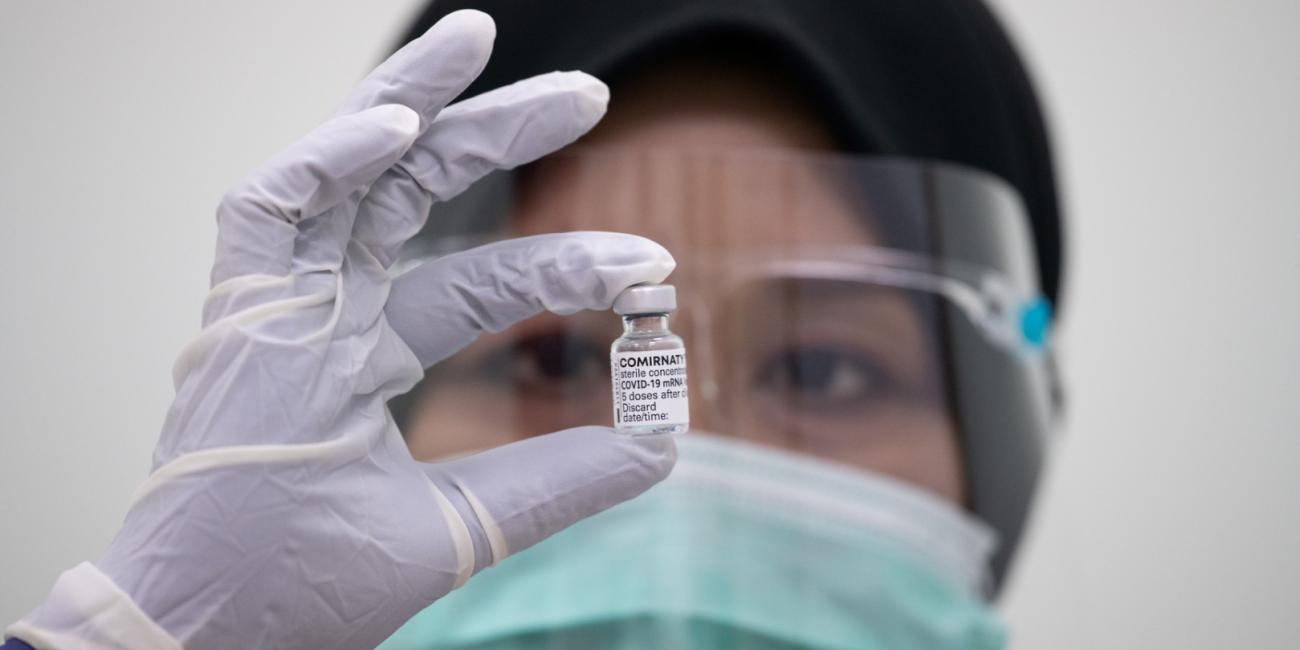
False ‘reasons’ to refuse Covid-19 vaccines circulate online
- This article is more than four years old.
- Published on June 10, 2021 at 05:40
- 4 min read
- By Richard KANG, AFP South Korea
The claim was shared here on South Korean blogging platform Naver Blog on May 29, 2021.
The Korean-language post reads: “I met with a prominent professor of biotechnology. He’s currently working at a university in Boston, USA. We talked about the current Covid-19 situation.
“Since he is afraid of being called a conspiracy theorist, he didn’t want to identify himself. But I’m sharing what I heard because it might be helpful to you.”

The post lists “eight reasons not to get vaccinated”:
1) mRNA technology lacks a track record of studies;
2) There is no scientific evidence that Covid-19 vaccines can protect people;
3) The virus’s spike protein sheds and reproduces itself;
4) The body will become a factory to produce spike protein;
5) Covid-19 vaccines were not tested on animals;
6) Vaccine makers did not reveal the ingredients of their products;
7) Doctors are afraid of reporting adverse events in case of retaliation from drug companies; and
8) PCR tests are not scientifically reliable.
The same list has been shared on Facebook here and here; on Naver Blog here and here; and on Daum Blog here.
The claim surfaced as South Korea raced to beef up its coronavirus vaccine roll-out, with authorities pledging to inoculate 13 million people with their first dose by the end of June.
While South Korea was held up as a model in handling the pandemic, the government has faced criticism for an initially sluggish vaccination campaign compared with other developed countries.
However, the claims are false. AFP has previously debunked all purported reasons cited in the misleading posts.
mRNA technology
Messenger RNA (mRNA) vaccines, like the ones developed by Moderna and Pfizer-BioNTech, deliver genetic instructions to produce the viral proteins needed to provoke a safe but robust offensive against the coronavirus.
While no mRNA vaccine had ever been approved for humans before the pandemic, the technology has been in the making for years.
“mRNA vaccines have been studied before for flu, Zika, rabies, and cytomegalovirus (CMV),” the US Centers for Disease Control and Prevention said on its website on March 4, 2021.
“As soon as the necessary information about the virus that causes COVID-19 was available, scientists began designing the mRNA instructions for cells to build the unique spike protein into an mRNA vaccine.”
The CDC said mRNA vaccines have been held to the same standards as all other types of vaccines in the United States.
Covid-19 vaccine efficacy
International health experts recommend taking the vaccine to build immunity against SARS-Cov-2, the virus that causes Covid-19.
“Studies show that COVID-19 vaccines are effective at keeping you from getting COVID-19. Getting a COVID-19 vaccine will also help keep you from getting seriously ill even if you do get COVID-19,” the World Health Organization (WHO) said on October 28, 2020.
Scientists are still learning how well vaccines prevent the transmission of the virus, although “early data show that vaccines help keep people with no symptoms from spreading COVID-19,” the CDC said.
Spike proteins
Health experts said there is no shedding of the virus’s spike protein -- which the vaccine makes inside the body to elicit an immune response -- when people receive a Covid-19 jab.
Dasantila Golemi-Kotra, a microbiologist at Canada’s York University said that “no spike protein gets shed when we get vaccinated.”
“Even if the spike protein was shedding, although impossible, this protein cannot infect someone else,” she told AFP in April 2021.
Barry Pakes, assistant professor at the Dalla Lana School of Public Health at the University of Toronto, also explained in April 2021 that “there is absolutely no evidence whatsoever of shedding of spike protein in vaccinated individuals, nor is it even theoretically possible.”
Scientists said that mRNA from vaccines was quickly degraded in the body.
“There is no doubt that after a very short period of time, after it has created antigens [proteins] which in turn lead to antibodies, the RNA from the vaccine is destroyed,” French geneticist Axel Kahn told AFP in December 2020.
Animal tests
In the US, three Covid-19 vaccines have been authorised for emergency use by the US Food and Drug Administration (FDA): one from Pfizer-BioNtech, another from Moderna and a third from Johnson & Johnson.
All three companies disclosed the results of trials on non-human subjects. The vaccines caused an immune response that protected animals against a SARS-CoV-2 infection that causes Covid-19.
Vaccine ingredients
Ingredients of four major Covid-19 vaccines are available to check on the websites of either manufacturers or health authorities: Oxford–AstraZeneca, Pfizer–BioNTech, Johnson & Johnson and Moderna.
Reporting adverse events
Vaccine Adverse Event Reporting System (VAERS) is a tool to report adverse events from vaccination. It is a passive reporting system, meaning it relies on individuals to send in reports of their experiences, according to the system’s official website.
“Anyone can submit a report to VAERS, including parents and patients,” it reads.
In particular, healthcare providers are required by law to report adverse events; regardless of whether the vaccine is thought to have caused the adverse event.
PCR tests
A PCR test diagnoses people who are currently infected with SARS-CoV-2, the virus which causes Covid-19.
The test, which involves collecting a swab sample from a person’s nose or throat, is considered the most accurate and reliable test for Covid-19, according to Cleveland Clinic, a nonprofit American academic medical centre based in Cleveland, Ohio.
AFP has debunked hundreds of false claims about vaccines and the pandemic, which are available here.
Copyright © AFP 2017-2026. Any commercial use of this content requires a subscription. Click here to find out more.
Is there content that you would like AFP to fact-check? Get in touch.
Contact us




